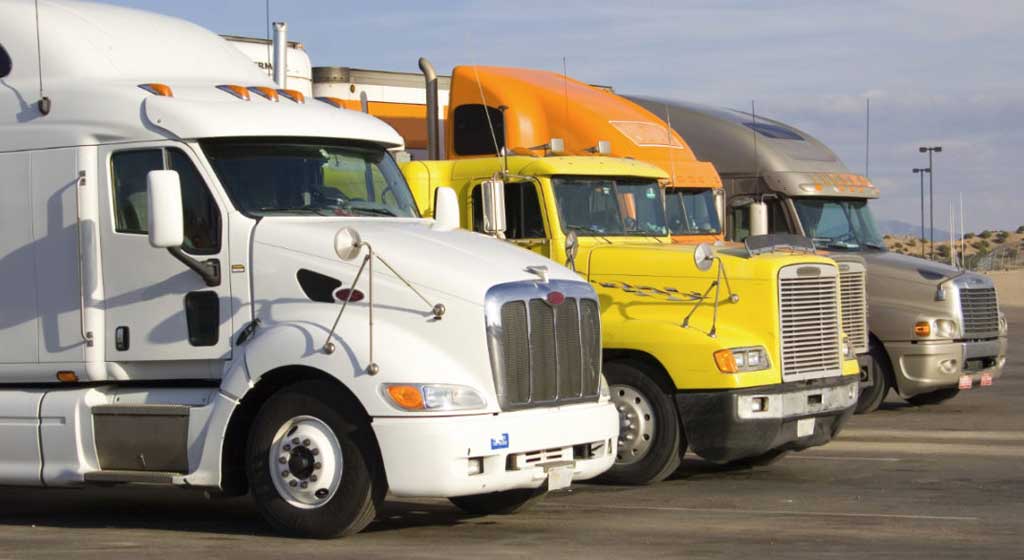Embarking on a career in commercial truck driving is a journey that begins with obtaining a commercial learner's permit (CLP). This pivotal step not only opens the door to the world of professional driving but also sets the foundation for future success in the industry. In this comprehensive guide, we will delve into the essentials of obtaining a commercial learner's permit, shed light on the intricacies of CDL renewal requirements, and explore the transformative impact of Class A CDL training on driving aspirations.
The Significance of a Commercial Learner's Permit
What is a Commercial Learner's Permit (CLP)?
A commercial learner's permit is the precursor to a full Commercial Driver's License (CDL). It grants aspiring truck drivers the legal authority to operate a commercial motor vehicle (CMV) under the supervision of a licensed CDL holder. Acquiring a CLP is an essential step in the journey toward becoming a professional truck driver.
The Application Process: Key Steps and Considerations
To unlock the world of commercial truck driving, aspiring drivers must navigate the application process for a CLP. This involves:
Eligibility Check: Ensure you meet the eligibility criteria, including age requirements and a clean driving record.
Written Exams: Pass the written exams that cover general knowledge, specific endorsements, and air brakes, if applicable.
Medical Examination: Undergo a Department of Transportation (DOT) physical to ensure you meet the medical requirements for commercial driving.
Once these steps are completed, successful applicants are issued a CLP, allowing them to practice driving a CMV under the supervision of a qualified instructor.
Navigating CDL Renewal Requirements: A Continuing Commitment
Understanding CDL Renewal Requirements
Maintaining a valid Commercial Driver's License is a continual commitment that requires adherence to specific CDL renewal requirements. These requirements vary by state but generally include:
Regular Renewal: CDL holders are typically required to renew their licenses every four to eight years, depending on state regulations.
Medical Certification: A valid medical certificate is a prerequisite for CDL renewal, ensuring that drivers are medically fit to operate commercial vehicles.
Endorsements and Upgrades: Drivers seeking endorsements or upgrades, such as transitioning to a Class A CDL, must meet additional renewal criteria.
Adhering to these requirements ensures that CDL holders maintain their eligibility to operate commercial vehicles and stay updated on the latest industry standards.
The Transformative Impact of Class A CDL Training
Why Class A CDL Training Matters
While a CLP allows individuals to practice driving under supervision, the true keys to success lie in Class A CDL training. This comprehensive training program goes beyond the basics, providing aspiring drivers with the skills, knowledge, and confidence needed to excel in the professional driving arena.
In-Depth Curriculum: Mastering the Essentials
Class A CDL training programs cover a wide range of topics, including:
Vehicle Operation: Hands-on training for safely operating Class A vehicles, including tractor-trailers.
Road Rules and Regulations: In-depth understanding of traffic laws, safety regulations, and industry standards.
Vehicle Inspection: Thorough training on pre-trip and post-trip inspections to ensure vehicle safety.
Hazard Awareness: Developing the skills to identify and respond to potential hazards on the road.
Behind-the-Wheel Experience: Building Confidence
One of the defining aspects of Class A CDL training is the extensive behind-the-wheel experience it provides. This practical training allows aspiring drivers to apply theoretical knowledge in real-world driving scenarios, honing their skills and building the confidence necessary for success in the industry.
Professional Guidance: Learning from Experienced Instructors
In Class A CDL training programs, students benefit from the guidance of experienced instructors who bring a wealth of knowledge and industry insights. Learning from professionals who understand the nuances of commercial driving enhances the overall training experience and prepares students for the challenges they may encounter on the road.
The Keys to Success Unveiled: Integration and Application
Integration of Commercial Learner's Permit, CDL Renewal, and Class A CDL Training
Unlocking the world of commercial truck driving involves seamlessly integrating the acquisition of a commercial learner's permit, understanding and meeting CDL renewal requirements, and completing a comprehensive Class A CDL training program. These elements form the foundation for a successful and enduring career in the trucking industry.
Continual Learning and Growth
Success in the world of commercial truck driving is not just about obtaining a CLP, renewing a CDL, or completing training—it's about a commitment to continual learning and growth. Staying updated on industry trends, safety regulations, and advanced driving techniques ensures that drivers remain at the forefront of their profession.
Conclusion: Driving Success with Every Mile
In conclusion, obtaining a commercial learner's permit, navigating CDL renewal requirements, and completing Class A CDL training are the keys to unlocking the vast and dynamic world of commercial truck driving. Each step represents a commitment to excellence, safety, and continuous improvement—essential components of a successful and fulfilling career on the road. Aspiring drivers who embrace these keys to success not only unlock doors to opportunities but also drive the future of the trucking industry with confidence and expertise.


No comments yet